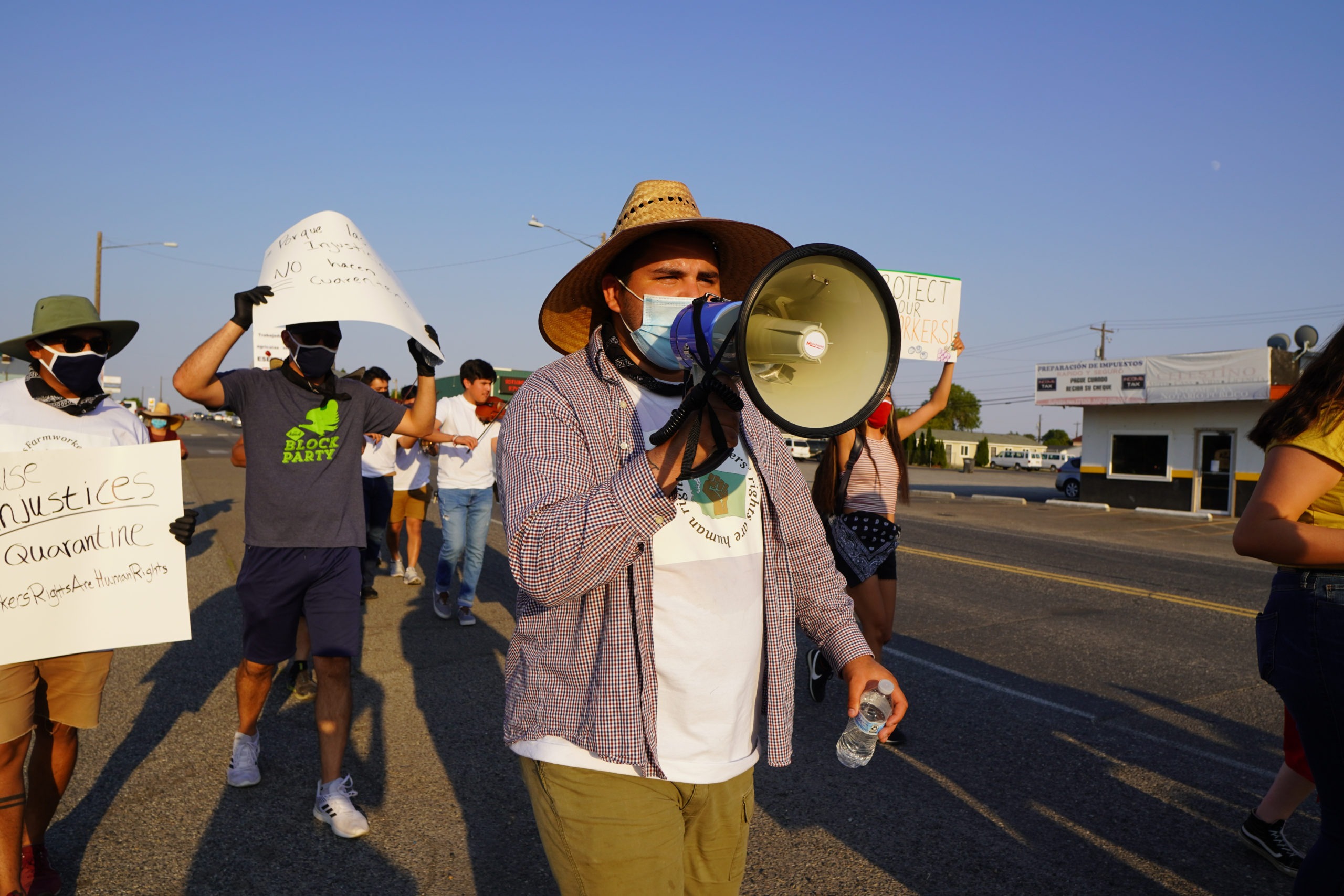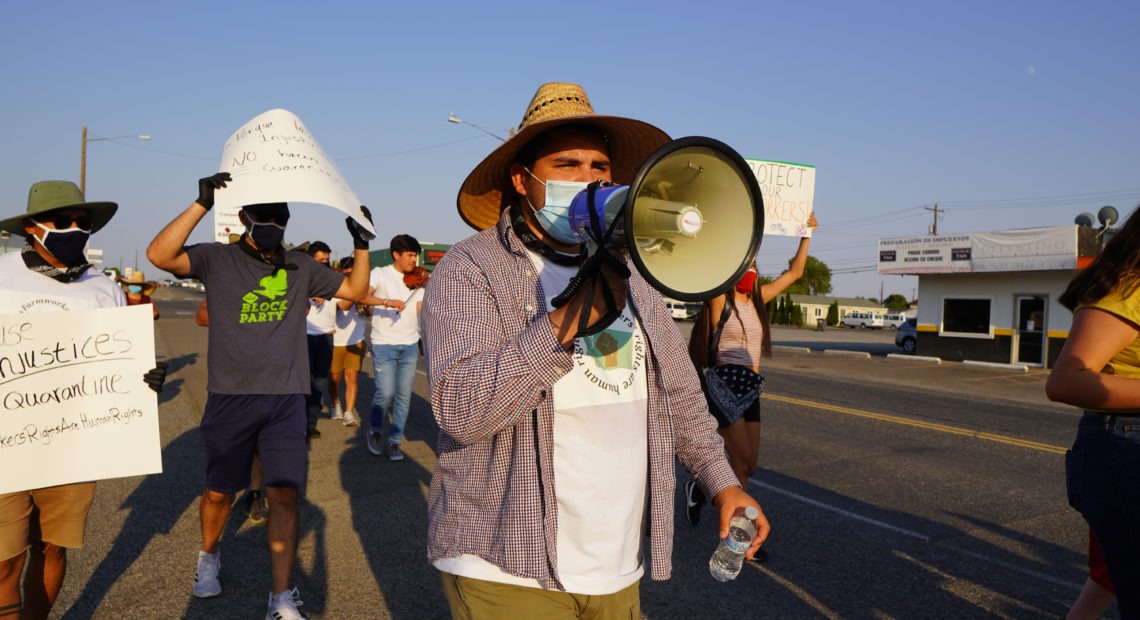
Farmworker Safety Takes Center Stage In Race For Central Washington State House Seat
Listen
Driving through Mattawa July 29, onlookers witnessed a seemingly jovial scene that sounded like a block party. But among the gritos of the mariachi and the dancing residents of Mattawa, they heard expressions of anger and frustration.
It’s a labor demonstration. And a political one.
In the Columbia Basin, the Democratic challenger for Washington state’s 13th Legislative District House seat has focused his message on farmworker safety and called for the boycott of fruit. It’s quite a move for a candidate in a district where the economy is dominated by agriculture.
Eduardo Castañeda-Díaz made calls to boycott apples, blueberries and cherries in a series of marches held throughout small towns like Quincy, Ephrata, and Mattawa ahead of the recent August 4th primary.
Fewer than 5,000 people live in Mattawa, many farm workers and immigrants from Mexico.
When it comes to the pandemic, the owner of La Fina home goods store, who declined to share her name, says farmworkers here keep quiet about the challenges they face. That’s despite feeling a lack of protection against the coronavirus and the economic fallout it yields.
“There are many here who don’t speak out about what they see. They don’t speak out about how they’re treated,” she says in Spanish.
Farmworkers already face tough working conditions, and now they have to deal with a virus “de pilón,” she says.
Workers who visit her business share their complaints: only thin plastic separates them from coworkers in agricultural operations; they’re not getting enough protective equipment like masks The importance of such measures was underscored recently by the death of three farmworkers in Brewster last month.
The undocumented among them lament not qualifying for federal stimulus checks, she says.
Not Keeping Quiet
Who doesn’t keep quiet in Mattawa are young residents like Lluviana Mendoza, who rallied teens from the local high school, where 95% of students are Latinx.
Mendoza says children of farmworkers, some of whom work alongside their parents, aren’t afraid of speaking out for their families.
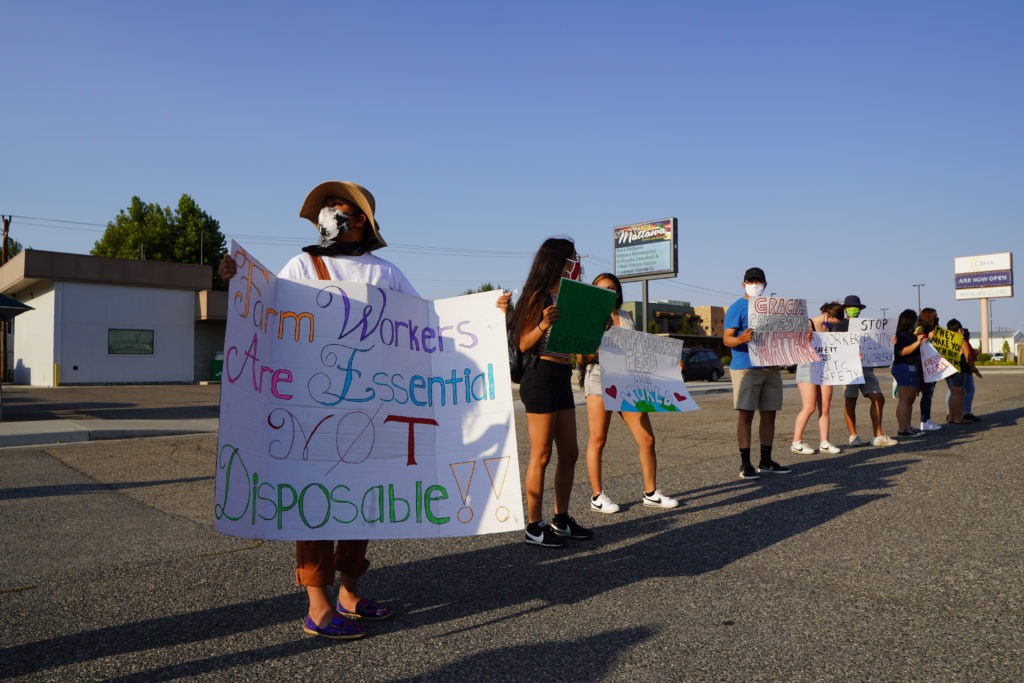
Lluviana Mendoza, right, rallied some of Mattawa’s youth to attend a march for farmworker protections against COVID-19 organized by Democratic candidate for state house Eduardo Castañeda-Díaz. CREDIT: Enrique Pérez de la Rosa/NWPB
“As I see it with my own family, they’re scared of getting sick,” Mendoza says. “Because if they do get sick they’re not getting help from anyone. Even though they say they’re essential workers, that they’re needed, it’s not really shown because they don’t get any help.”
Democrat Castañeda-Díaz came here in late July to share his message for better farmworker protections by taking mariachi on a tour of serenatas for Mattawa families.
The July 29 march made a stop in front of a mobile home park, home to dozens of farmworker families. A protestor urges them to join.
But no one does.
“I brought a mariachi to serenade the people of Mattawa, Washington, so that they know that they are appreciated,” Castañeda-Díaz says. “As a son of formerly undocumented Mexican parents, I have that connection to central Washington that politicians currently in office lack.”
But that may not be enough to get Castañeda-Díaz elected in this district, a Republican stronghold. He passed the primary with around 23% of the vote. In 2018, Democratic challenger Jesse Oakey got nearly 30% of the primary vote.
WATCH: WA Farmworkers Push For More Coronavirus Protections
(Story continues below video)
Endorsements And A Few “Bad Apples”
Incumbent Rep. Tom Dent is running for his fourth term, having worked to protect pesticide use on farms and addressing the dwindling Odessa aquifer. Dent is endorsed by the Washington State Farm Bureau. Campaign contributions from the Washington State Tree Fruit Association and other supporters total more than $100,000.
In April, Dent spearheaded a letter signed by GOP members calling for the state to allow farmers to use bunk beds when housing farmworkers. Dent and his colleagues argued a ban on bunk beds would halve housing capacity, and that farmworkers are younger and healthier than the rest of the population, making them less susceptible to complications from COVID-19.
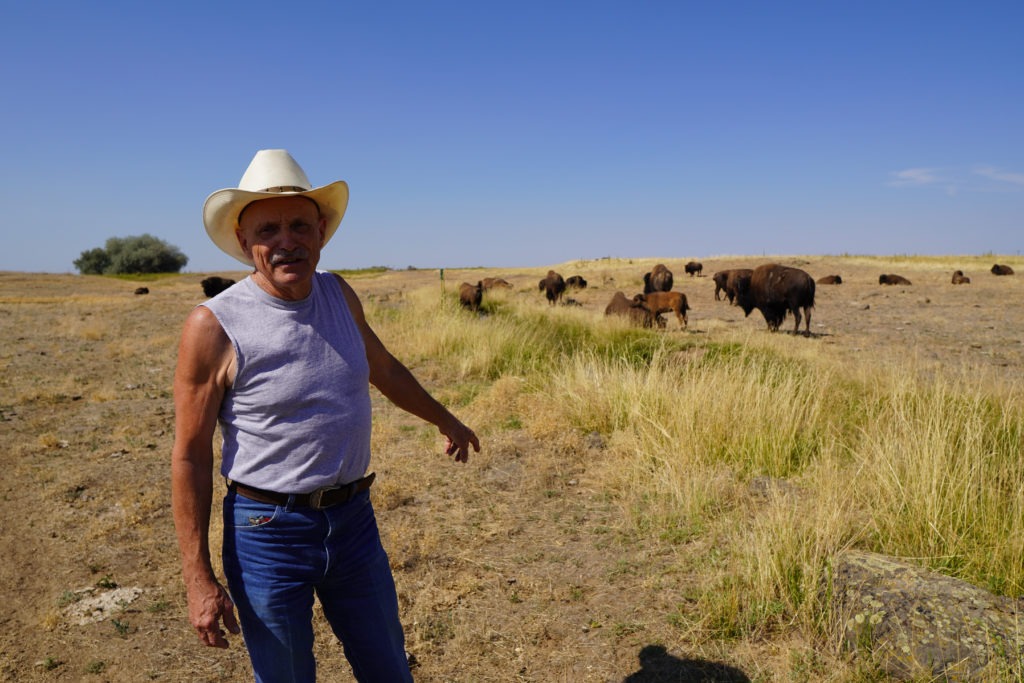
Washington state Rep. Tom Dent, R-Moses Lake, gives a tour of his Flying T ranch, where he raises buffalo. Dent is running for reelection for a fourth term in the largely agricultural 13th Legislative District. CREDIT: Enrique Pérez de la Rosa/NWPB
Last month, a judge upheld the use of bunk beds to house cohorts of 15 workers.
Castañeda-Díaz argues the rule puts farmer interests ahead of the health of farmworkers. He says the notion farmworkers are less susceptible to develop COVID-19 complications was “problematic” and not based on scientific fact.
“It’s unfortunate that our state leaders who take big money from big agricultural growers are biased towards the corporate growers in our state,” Castañeda-Díaz says. “I believe it’s unfair that the GOP took the side of the growers without taking into consideration (the) farmworkers.”
Dent says in response that part of his job as a lawmaker is to balance interests between farmers and farmworkers, and to keep the agricultural supply chain moving.
“How can we keep our farmworkers safe and keep them working?” he says, describing the thought process behind the letter. “How can we keep our growers in business because they need the farmworkers? How can we keep the food supply going?”
Dent adds that though there are a few “bad apples” among fruit growers, the majority take care to keep workers healthy and know they can’t run a farm without them.
“There’s a lot of things that affect what (farmers) do, from the government to the weather, to the labor force. It’s almost an endless list,” Dent says. “When you get into a high labor crop, without your farmworkers, you cannot function. There’s no way. You could not pick enough apples to pay your water bill.”
To put pressure on farmers after the bunk beds rule, Castañeda-Díaz has called for a boycott on big-time Washington fruits, like apples, blueberries and cherries. That may drive away voters who see agriculture as the economic lifeblood here — and a major driver of political support.
“The COVID-19 pandemic is really testing the morality and principles by which people stand by,” Castañeda-Díaz says. “I lose no sleep in putting my campaign on the line.”
He says that unlike COVID-19, politics is not life and death.
Related Stories:
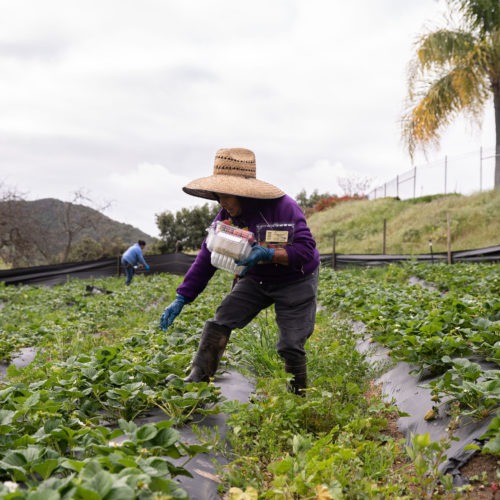
U.S. Department of Labor updates prevailing wage rates for agricultural workers
The U.S. Department of Labor updated the prevailing wage rates for temporary agricultural workers in Washington state. The move came after Familias Unidas por la Justicia, a farmworker’s union in Skagit County, sued the department last May for failing to protect local workers’ wages and labor conditions.
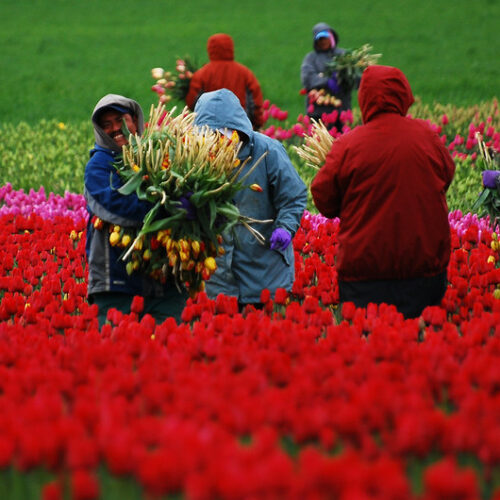
New funding to build farmworker housing in the Pacific Northwest, nationwide
The United States Department of Agriculture is soliciting applications for funding to build farmworker housing nationwide.
In the Pacific Northwest, leaders hope the money can address gaps in farmworker housing. The Pacific Northwest is in a housing crisis and that impacts rural small businesses and agricultural producers, as well as farmworkers, said Helen Price Johnson, who is the Washington State Rural Development director for the USDA.
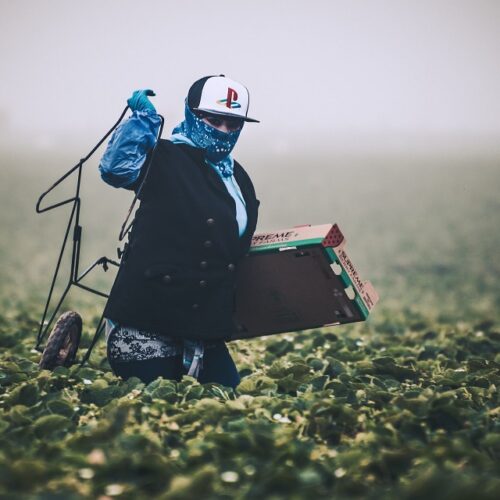
Agricultural overtime law still causing controversy
Farmworkers, farmers and advocates gathered at two events – all working to get lawmakers’ attention about the agriculture overtime law. An annual tribunal defended farmworkers’ rights and the overtime law. A separate rally focused on the negative impacts of it.

